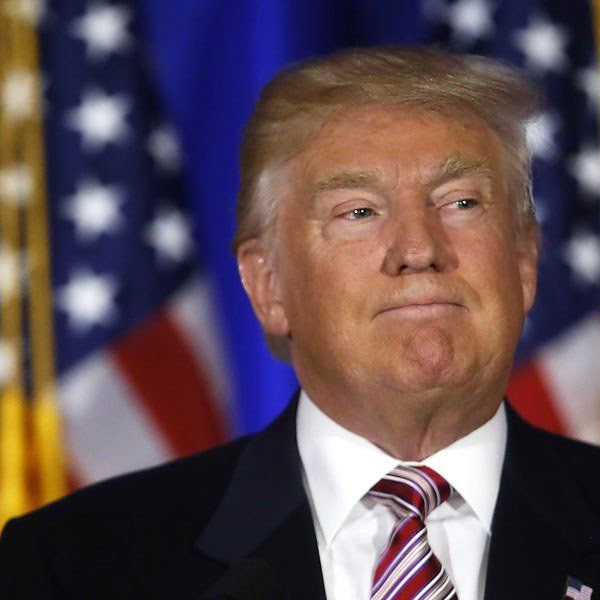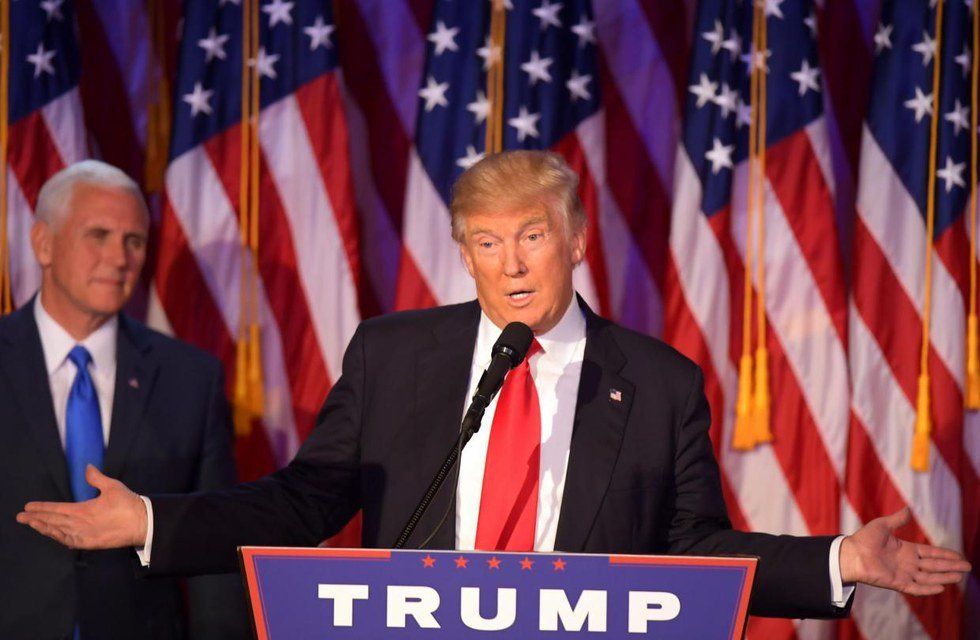The much awaited 2016 Presidential election has finally come to a close with some very shocking results. The Republican Party was successful in holding onto the majority in both the Senate and the House of Representatives, which is huge going forward. The big surprise of the night was that Donald J. Trump has been elected President of the United States of America. Many people believed Former Secretary of State Hilary Clinton would receive the honor of winning; however, President-Elect Trump has shocked the world by winning the 45th Presidency. I don't think any of the major pundits could have predicted the results of last night. So lets examine what happened, why, and what it means for both parties going forward.
So, what was the story last night? At the beginning of the night things began to fold out as expected. Traditionally conservative states went to Trump and most of the liberal states went to Clinton. The first sign of trouble for the Clinton campaign came when the election results started coming in for the East Coast. It became evident that key electoral states, such as Florida, North Carolina, and Virginia were going to be very close. The most shocking of which was Virginia, which was predicted to go heavily blue. Clinton lost North Carolina and Florida but held onto Virginia by a small margin. The true shock of the night came in the "Rust-belt States" of Pennsylvania, Michigan, and Wisconsin. These three states have historically and were favored to vote Democrat; however, the lead consistently flipped back and forth between Clinton and Trump. Donald Trump ultimately came out victorious in all three states, thus, at around 2:30, most of the major news networks projected that Donald Trump would be the next President. Equally shocking but slightly overlooked is the fact that Hilary Clinton won the popular vote by about 200,000 votes. So what does this all mean?
For the Democrats:
The Democratic Party has a lot to think about after this election. Losing two key Democratic states in Wisconsin and Michigan must be looked at as a sign that the party is loosing support with a certain demographic. These states are mainly made up of working class, Caucasian Americans, who work in the manufacturing sector. It was a common conception that these people traditionally vote democrat based off of the issues surrounding labor unions and collective bargaining; however, it seems as though Donald Trumps message of bringing manufacturing jobs back to the States hit home in a big way for these people. Based on these results the Democratic party is going to have to work on reigning in the support of the white middle class, which despite the changing demographics of the nation, is still a large portion of the vote. Couple this with under performance in inner cities and the Democratic Party has a major collapse in the coalitions that made up their electorate.
For the Republicans
One thing that became very apparent in last nights election was the lack of support from millennials, minorities, and college educated Caucasians. This isn't news for the Republican Party, minorities have traditionally voted for the Democrats since the 60's and the millennials widely vote based on progressive social issues. The truth for the Republican Party is that the demographic that one them this election is slowly growing smaller compared to the influx of minority and young voters. The simple fact is that the party needs to move in a more progressive direction. An acceptance of gay rights is a good stepping stone for that movement. The Republicans can and should begin to move towards more of a Libertarian base. For the GOP it is essential to adopt platforms like gay rights and isolationist foreign policy to appeal more to a younger voting class.
Why?
Everything we thought we knew about American Politics has been flipped on its head and the results of the election should not have happened, not in the context of politics or morality. From an empirical view point Donald Trump should not have been elected. Normally, the manufacturing sector and the unions vote democrat, but in this election they did not. It leads to the thought that Hilary Clinton may have assumed Michigan and Wisconsin would just fall in suit as normal. The Clinton campaign did not spend as much time in these states as they should have, and it showed in this election. Perhaps this wasn't really an underdog story for Donald Trump, and more of a huge blunder and possibly even arrogance on the part of Hilary Clinton and the DNC.
No matter what, the election results would not have changed the sentiment of the country on Wednesday. It is very obvious that the United States is not as united as we would hope for. No matter what side of the argument you fall on, it is impossible to negate the fact that race, gender, and even party relations are suffering a severe divide. It is certainly disheartening to see the overwhelming majority thinking these problems are now out of our hands. It is not in the capabilities of one man to heal our wounds. The citizenry must now make a decision to either come together as one nation under our shared principles, or crumble under the stress of division. The fate of the nation is in the large hands of the people not in the small hands of one person.





















